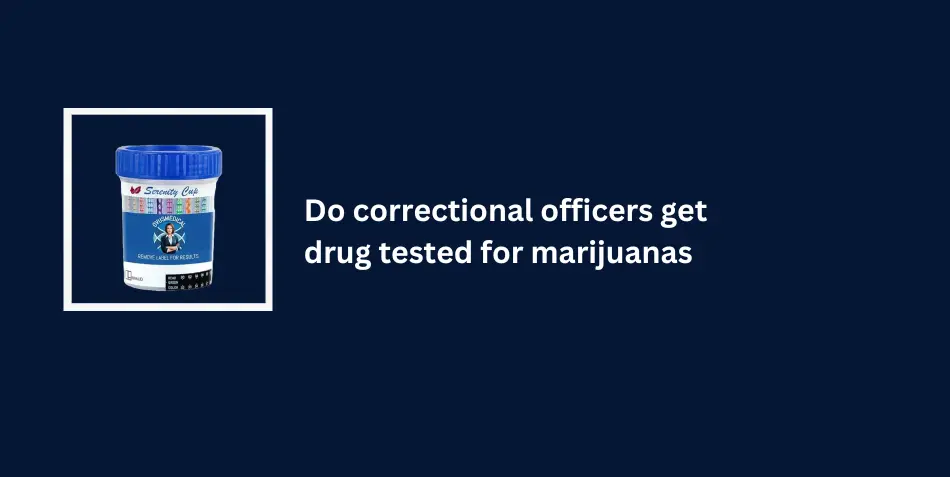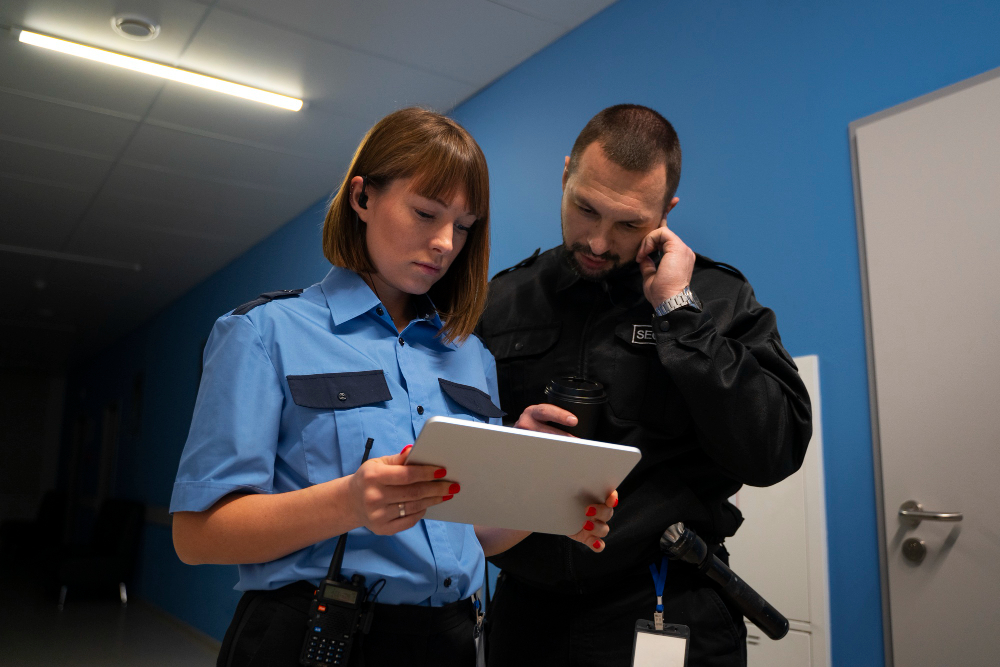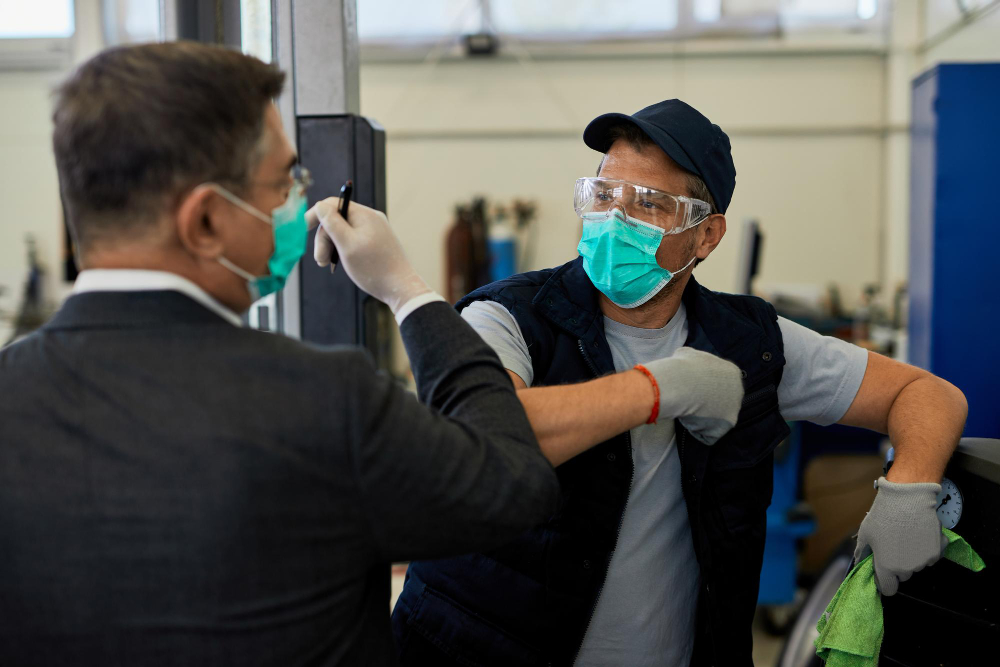Do Correctional Officers Get Drug Tested for Marijuana?
Correctional officers play a vital role in maintaining order and security within prisons and detention facilities. Given the sensitive nature of their responsibilities, it’s essential to understand whether correctional officers undergo drug testing, especially for marijuana. In this article, we will explore the intricacies of drug testing for correctional officers, focusing on the primary question: Do correctional officers get drug tested for marijuana? Additionally, we will address secondary considerations, such as what kind of drug test do correctional officers take?
The Importance of Drug Testing for Correctional Officers
Correctional officers are entrusted with overseeing inmates, preventing contraband, and ensuring safety within facilities. These responsibilities require high levels of alertness, judgment, and integrity. Drug use, including marijuana consumption, could impair these qualities, potentially jeopardizing the safety of the officers, inmates, and the facility as a whole.
Do Correctional Officers Get Drug Tested for Marijuana?
The short answer is yes, correctional officers are typically subject to drug testing, including tests for marijuana. However, the specifics depend on the policies of the state, federal, or private agency that employs them. Let’s delve deeper into how these policies operate:
- Pre-Employment Drug Testing Most correctional agencies require candidates to pass a pre-employment drug test before they can be hired. This screening includes testing for marijuana, even in states where recreational or medical marijuana use is legal. Federal regulations classify marijuana as a Schedule I drug, which means its use is prohibited under federal law, regardless of state laws.
- Random Drug Testing Many correctional facilities implement random drug testing policies to ensure ongoing compliance with drug-free workplace standards. These tests are conducted without prior notice and include marijuana in their panel of substances.
- Reasonable Suspicion Testing If a supervisor has reason to believe a correctional officer is under the influence of drugs, including marijuana, they can request a drug test. Suspicion may arise from erratic behavior, unusual absenteeism, or reports from colleagues.
- Post-Incident Testing Correctional officers involved in incidents such as workplace accidents, fights, or security breaches are often required to undergo drug testing. These tests are designed to determine whether drugs, including marijuana, played a role in the incident.
Buy Drug Test Products at the Lowest Prices, Guaranteed
What Kind of Drug Test Do Correctional Officers Take?
The type of drug test correctional officers take can vary depending on the agency’s policies. Here are the most common methods:
- Urine Drug Tests Urine tests are the most common form of drug testing for correctional officers. These tests are cost-effective, non-invasive, and capable of detecting marijuana use within a window of up to 30 days, depending on frequency and quantity of use.
- Hair Follicle Tests Hair follicle tests are less common but provide a longer detection window, typically up to 90 days. This method can identify patterns of drug use over time, making it ideal for agencies aiming to detect chronic use.
- Saliva Drug Tests Saliva tests are less invasive and offer a shorter detection window, usually up to 72 hours for marijuana. These tests are often used in post-incident or reasonable suspicion scenarios.
- Blood Tests Blood tests are the most accurate but are also the most invasive and expensive. These tests are usually reserved for post-incident investigations where immediate impairment is suspected.
Marijuana Legalization and Drug Testing Policies
The legalization of marijuana in many states has raised questions about its impact on employment drug testing policies. Despite state-level legalization, federal law still prohibits marijuana use, which significantly influences policies for correctional officers. Here are some key points to consider:
- Federal Employment Regulations Federal agencies, including those overseeing correctional facilities, adhere to federal drug-free workplace regulations. This means marijuana use is prohibited, even if the officer resides in a state where marijuana is legal.
- State-Level Differences State-run correctional facilities may have varying policies regarding marijuana use. However, most states maintain strict drug testing policies for correctional officers, emphasizing the need for a drug-free work environment.
- Medical Marijuana Exceptions Some states allow the use of medical marijuana for specific health conditions. Correctional officers using medical marijuana must disclose this to their employer, but accommodations are not guaranteed due to the nature of their duties.
Consequences of Failing a Drug Test
Failing a drug test can have severe consequences for correctional officers, including:
- Disqualification from Employment Candidates who fail pre-employment drug tests are typically disqualified from the hiring process.
- Disciplinary Action Current employees who fail a drug test may face disciplinary actions, such as suspension, mandatory rehabilitation programs, or termination.
- Impact on Certification In some states, correctional officers are required to hold certifications. A failed drug test could result in the revocation of their certification, preventing future employment in the field.
Ensuring a Drug-Free Workplace
To maintain a drug-free workplace, correctional facilities often implement proactive measures, such as:
- Regular Training Educating officers on the dangers of drug use and its impact on their performance.
- Employee Assistance Programs (EAPs) Offering support for officers dealing with substance abuse issues.
- Strict Enforcement of Policies Ensuring that all employees understand and adhere to drug testing policies.
Conclusion
To answer the primary question: Do correctional officers get drug tested for marijuana? The answer is a resounding yes. Correctional officers are subject to strict drug testing policies that include marijuana, reflecting the critical nature of their responsibilities. The type of drug test correctional officers take can vary, but urine tests remain the most common method. Despite changing marijuana legalization laws, federal and most state regulations continue to enforce a drug-free workplace for correctional officers.
Correctional facilities prioritize safety and integrity, making regular drug testing a vital component of their operations. For aspiring and current correctional officers, understanding these policies is crucial to maintaining compliance and excelling in this challenging yet rewarding career.
More products we offer:
FAQs
- Do correctional officers get drug tested for marijuana?
- Yes, correctional officers are typically subject to drug testing, including tests for marijuana, depending on the policies of their employing agency.
- What types of drug tests do correctional officers undergo?
- Common drug tests for correctional officers include urine tests, hair follicle tests, saliva tests, and blood tests, depending on the situation and agency policies.
- Do correctional officers have to pass a drug test before being hired?
- Yes, most correctional agencies require candidates to pass a pre-employment drug test, which includes testing for marijuana.
- Can correctional officers be tested for marijuana if they are suspected of being under the influence?
- Yes, correctional officers can be tested if there is reasonable suspicion that they are under the influence of drugs, including marijuana.
- Are correctional officers tested for drugs after workplace incidents?
- Yes, correctional officers involved in workplace accidents, fights, or security breaches are typically required to undergo drug testing, including marijuana.
- Do state laws about marijuana legalization affect drug testing for correctional officers?
- Despite marijuana being legal in some states, federal law prohibits its use, which influences drug testing policies for correctional officers. Most correctional facilities maintain strict drug-free policies.
- How long does marijuana stay detectable in a drug test for correctional officers?
- Marijuana can be detected for varying periods, depending on the type of test. Urine tests can detect it for up to 30 days, hair follicle tests can detect it for up to 90 days, and saliva tests have a shorter detection window of up to 72 hours.
- What happens if a correctional officer fails a drug test?
- If a correctional officer fails a drug test, they may face consequences such as suspension, mandatory rehabilitation, or termination, depending on the circumstances and agency policies.
- Are there any exceptions for correctional officers who use medical marijuana?
- While some states allow medical marijuana use, correctional officers must disclose this to their employer. However, due to the nature of their duties, accommodations for medical marijuana use are not guaranteed.
- What measures do correctional facilities take to ensure a drug-free workplace?
- Correctional facilities maintain drug-free workplaces by implementing regular training, offering employee assistance programs, and strictly enforcing drug testing policies.


